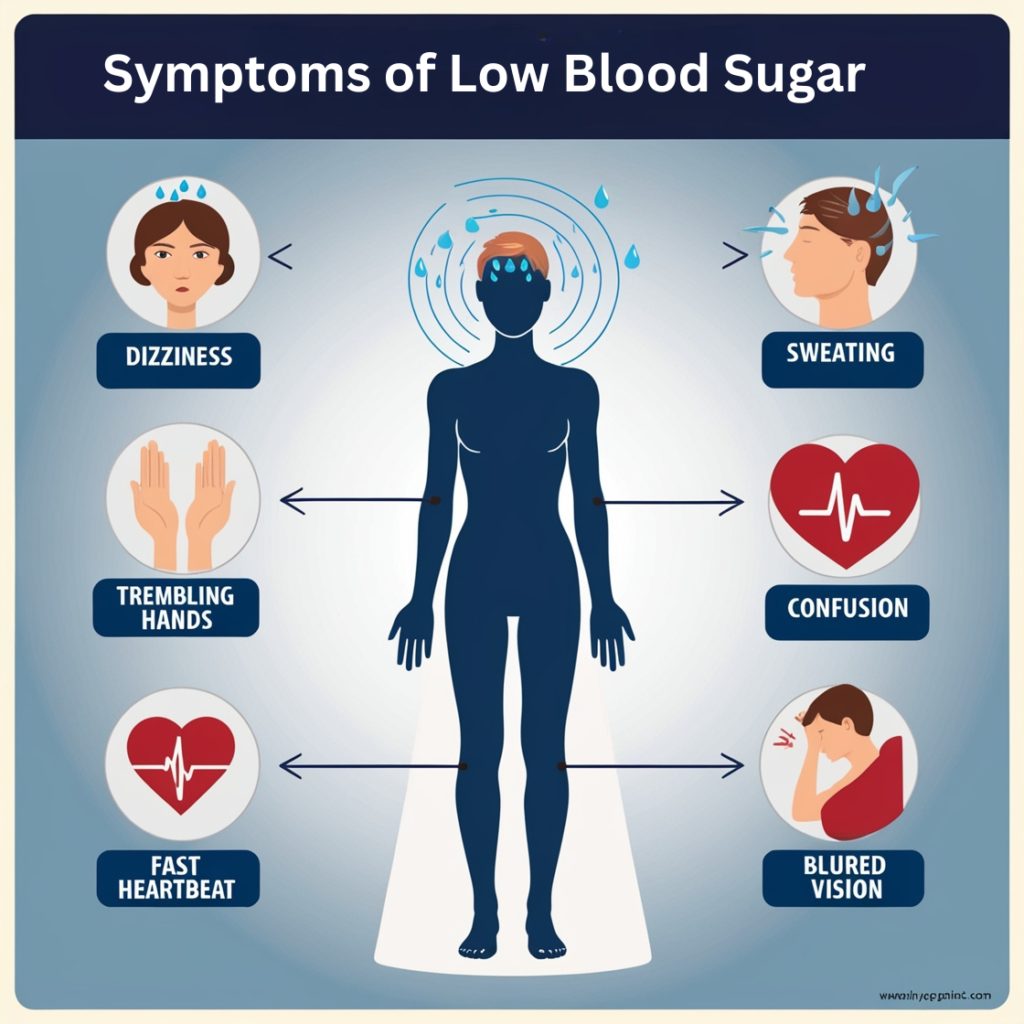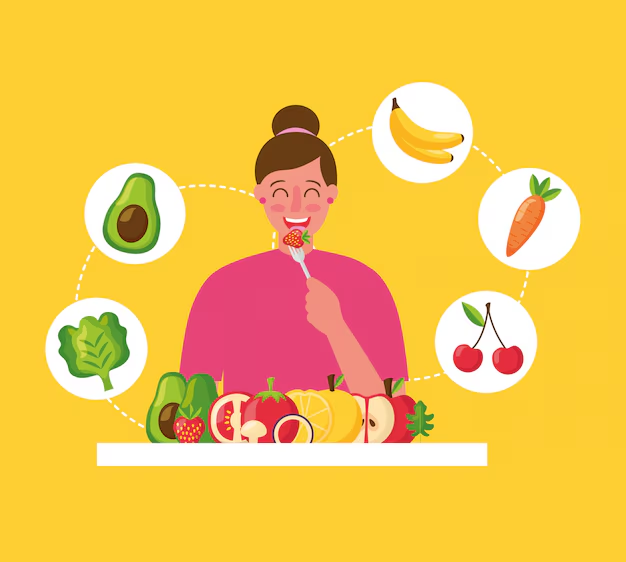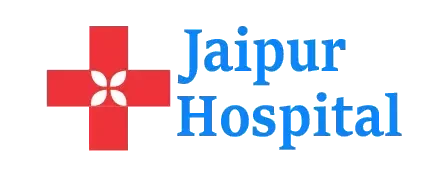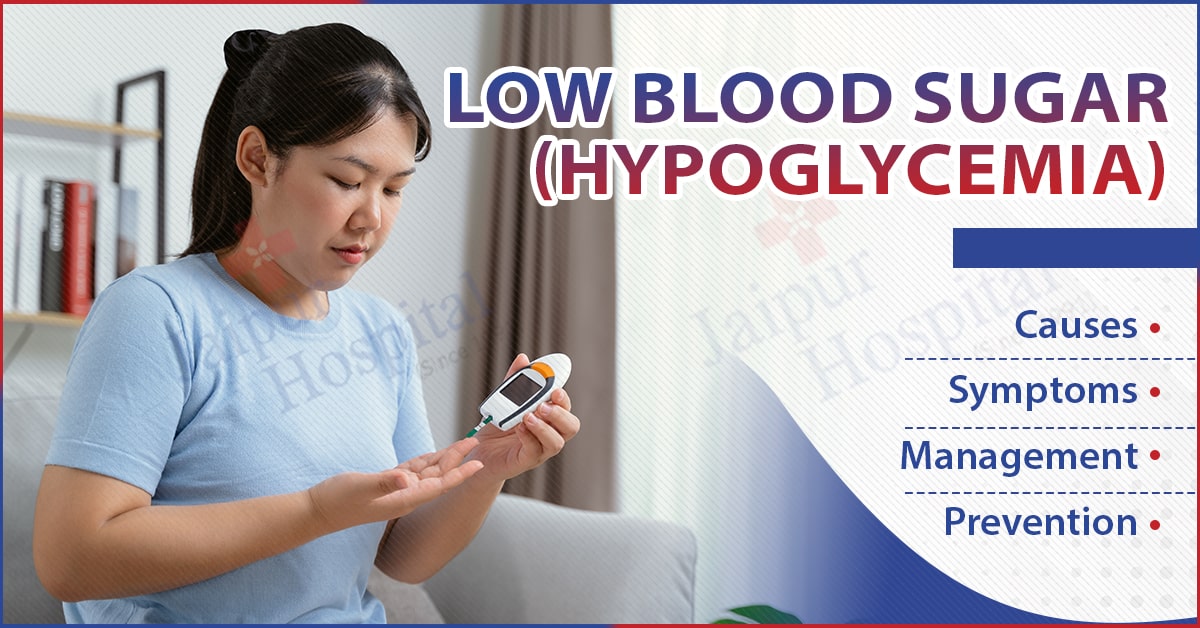Introduction
Low blood sugar, or hypoglycemia, is when blood glucose is below normal and causes symptoms that interfere with daily life and general health. Though it is well-known as a complication of diabetes treatment, hypoglycemia can happen in people who do not have diabetes as well, especially from prolonged fasting, heavy drinking, or other underlying medical conditions. In this article,
we are going to discuss the reasons behind hypoglycemia, identify its symptoms, present effective management, and highlight major prevention techniques to ensure stable blood sugars as well as overall well-being.
What is Low Blood Sugar (Hypoglycemia)?
Low blood sugar, or hypoglycemia, occurs when blood sugar falls below the level of 70 mg/dL. It produces symptoms such as dizziness, sweating, confusion, and weakness. Hypoglycemia is usually seen in individuals with diabetes because of the imbalance of medication but can happen in non-diabetics from fasting, too much alcohol consumption, or underlying diseases.
Causes of Low Blood Sugar
A few of the common reasons for Hypoglycemia are as follows:
- Diabetes Drug: Diabetic patients who are on insulin or other anti-diabetic drugs develop hypoglycemia when the dose is high or the drug is taken on an empty stomach.
- Missing Meals or Fasting: Extended fasting intervals lower blood glucose levels, thus reducing blood sugar levels, especially in diabetes patients on medication.
- Excessive Use of Alcohol: Alcohol can interfere with the release of stored glucose by the liver, and this can lead to extremely low blood sugar, especially if taken without food.
- Extreme Physical Exercise: Excessive or prolonged exercise without sufficient carbohydrates can cause the body to deplete its glucose stores too quickly, causing hypoglycemia.
- Hormonal Imbalances: Endocrine disorders of the adrenal gland or pituitary gland can interfere with the body’s capacity to control blood sugar by affecting the production of hormones such as cortisol and growth hormone.
- Severe Infections or Disease: Some infections or chronic illnesses raise the utilization of glucose by the body or lower food consumption, resulting in low blood sugar.
- Certain Medications: Certain non-diabetes medications, such as certain antibiotics, drugs for malaria, or heart medicines, can lower blood sugar levels, causing them to drop.
- Pancreatic Tumors (Insulinomas): Insulinomas are uncommon tumors of the pancreas that cause excessive production of insulin, causing repeated and intense episodes of hypoglycemia.
Read Also: What is Dementia: Causes, Symptoms, Treatment, and Risk factors?
Symptoms of Low Blood Sugar
The following are the symptoms of Low Blood Sugar:

- Shakiness: When blood sugar falls, the body releases adrenaline, which may lead to uncontrollable shaking or jitteriness, particularly in the hands.
- Sweating: The nervous system reacts to low glucose levels by stimulating sweat glands, resulting in excessive sweating even when not physically active.
- Dizziness: Insufficient glucose supply to the brain may result in dizziness, making it hard to stay balanced or concentrate.
- Hunger: The body cries out for energy when blood sugar is low, causing sudden and strong cravings for food, especially sugary or high-carb foods.
- Irritability and Mood Swings: When glucose drops, it impacts brain function, causing mood swings like irritability, anxiety, or inexplicable nervousness.
- Confusion and Difficulty Concentrating: The brain utilizes glucose as an energy source, and without it, mental functions slow down, resulting in forgetfulness, confusion, or concentrating difficulties.
- Blurred Vision: Inadequate glucose supply to the eyes results in inability to see, double vision, or momentary vision disturbances.
- Palpitations of the Heart: Low blood sugar triggers the release of stress hormones like adrenaline, which can cause an irregular or rapid heartbeat.
- Weakness and Fatigue: Muscles lack the necessary energy in the absence of adequate glucose levels, leading to extreme weakness, tiredness, and reduced physical endurance.
- Loss of Consciousness or Seizures: In severe cases, extremely low blood sugar disrupts brain function, leading to fainting, seizures, or, coma.
Read Also: Orthopaedic Problems in Winter: Common Problems & Prevention Tips
How to Manage Low Blood Sugar
Here are some tips you can use to control low blood sugar.
- Follow The 15-15 Rule: To raise low blood sugar, eat 15 grams of fast-acting carbohydrates — in the form of glucose tablets, fruit juice or candy. Read blood sugar again after 15 minutes. Keep doing this until you solve the problem.
- Eat A Balanced Meal: When the blood sugar levels are stable, a meal of protein and complex carbohydrates must be eaten to prevent the blood sugar level from falling again.
- Do Not Take Too Much Insulin: Always take a prescribed dose of insulin.
- Drink Water: Water is essential to help in glucose control and prevent dehydration.
- Have Slow-Acting Sugars: Keep some glucose tablets, candy, or juice for emergencies.
- Check Blood Sugar Regularly: Levels should also be frequently checked, especially when on diabetes medication.
- Seek Medical Assistance During Emergencies: For the unconscious or swallowing-impaired, immediate medical assistance should be rendered, with glucagon injection given as prescribed.
Prevention Tips for Low Blood Sugar
Following are the few precautions that you should observe to prevent Low Blood Sugar.
- Take Regular Meals: Eating regularly with proper balanced meals and snacks ensures blood sugar remains at stable levels throughout the day, so sudden dips from long intervals without eating do not occur.
- Select Complex Carbohydrates: Fiber-rich foods like whole grains, fruits, and vegetables release glucose slowly into the bloodstream, lowering the risk of sudden spikes in blood sugar levels.

- Check Blood Sugar Often: Regular blood sugar monitoring identifies early symptoms of hypoglycemia, enabling prompt action, particularly for people on insulin or diabetes medications.
- Adjust Medications Correctly: A consultation with a doctor helps ensure that insulin or diabetes drugs are properly balanced so that the glucose level doesn’t drop too low because of taking too much medication.
- Restrict Alcohol Consumption: Too much alcohol consumption can disrupt the liver’s function to release stored glucose, causing hypoglycemia, particularly when taken on an empty stomach. Moderation and taking alcohol with food will prevent this.
- Be Prepared with Ready Sugar Sources: Having glucose tablets, candy, or fruit juice on hand will restore blood sugar levels quickly in the event of an unexpected dip, avoiding extreme symptoms.
- Regulate Physical Activity: Pre- and post-exercise eating guarantees the body adequate glucose to power physical activity, avoiding energy exhaustion and low blood sugar attacks.
- Rest Adequately: Sound sleep is important in keeping blood sugar levels even by balancing hormones that manage glucose metabolism, minimizing the chances of nocturnal hypoglycemia.
- Identify Early Warning Signs: Having an understanding of early symptoms such as shakiness, lightheadedness, or hunger enables immediate intervention to re-regulate blood sugar levels before they drop to hazardous levels.
Conclusion
Hypoglycemia is a severe condition that needs to be identified and treated immediately to avoid complications. Caused by diabetes medication, fasting, or other medical conditions, stable blood sugar levels are critical for overall health. With knowledge of its symptoms, causes, and prevention methods, individuals can take proactive measures to control their health.
Hypoglycemia comes under the Endocrinology department, which deals with hormonal and metabolic disorders, including diabetes management. For optimal care and professional treatment, Jaipur Hospital is a reliable healthcare center that provides complete diabetes care and medical assistance to aid patients in maintaining normal blood glucose levels.


